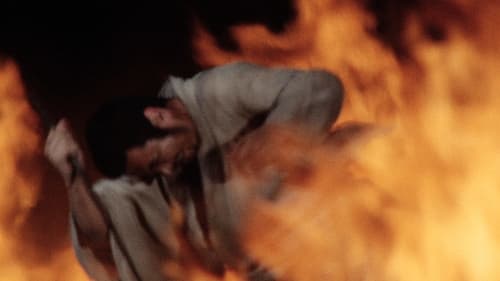
Vigésimo primera de las veintiséis películas basadas en el personaje de Zatoichi interpretado por Shintarô Katsu. Zatoichi se enamora de una mujer de una familia que pertenece a un clan yakuza cuyo cabecilla es Dark Lord Yamikubo, un hombre ciego malvado que no dudará en llevar a cabo sus propósitos a cualquier precio. Por otro lado, el antiguo marido de la mujer que ama Zatoichi, un ronin muy celoso interpretado por Tatsuya Nakadai, decide acabar con Zatoichi ya que no soporta pensar en que ambos dos puedan llegar a estar juntos.

Kawachiya Yohei
One murky night, Soetsu, a blind acupuncturist and money lender, calls on Shinzaemon Fukami, a Hatamoto samurai, to collect some money. But Fukami is too busy having an affair with a maid and curtly tells Soetsu to ask Sawano, his wife, for the money. As they have no money, Sawano interprets her husband's words as telling her to give herself to Soetsu in lieu of payment. However, Fukami catches them in the act and kills them both. Snatching up Soetsu's money bag with 30 ryo in it, he then asks two ruffians, to sink the bodies in a marsh. From what follows, it seems as if the spirits of Soetsu and Sawano are still hovering on earth in anguish and anger. For soon afterwards, Fukami is found dead by his own hand and Osono, Soetsu's younger daughter, suddenly disappears from home.

A coward boy fencer becomes invisible and matchless through a magic pill.

Story about a big boss who built the foundation of an industrial city.

Goda Jinzaemon
This period thriller concerns a very famous cat known as the "monster cat of Nabeshima". This cat, a symbol of vengeance in human disguise, takes revenge for the death of its master as well as for the corruption in the feudal system.

The tragic, yet exciting story of the friendship between Nakayama Yasubei, a member of the 47 Ronin, and Tange Tenzen, a relative by marriage of the vile Lord Kira. Remake of Hakuôki AKA Samurai Vendetta (1959).

Set up to be the patsy by a rival gang, Furuta Makoto attacks the yakuza boss he thinks is responsible for his father’s murder. He then learns it was all a plot to take over his father’s turf and he seeks vengeance against the puppet master behind the entire conspiracy. His quest for justice leads him to prison where he must fend off the attack of a master assassin before he can make his escape and go after the true killer!
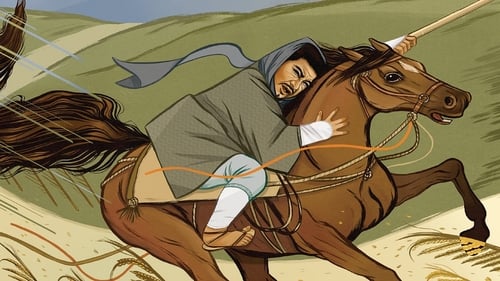
Aburaya no Banto
Zatoichi is forced to kill a young man who owes a debt to a yakuza boss. Moments later, his sister Osode arrives with the money she earned (prostituting herself) to pay his debts. The bosses true motives are revealed and he attempts to steal Osode even though the debt is paid. Zatoichi realizes his grievous error and protects the girl from the gang. Osode and Zatoichi are caught in a dilemma as she must rely on her brother's killer for protection and Zatoichi wrestles with the injustice he has caused.

It’s cross and double-cross in these further adventures of Ryuzen, the wayward priest played by Katsu Shintaro as he tries to help a woman who may be the heir to a fortune get what is rightfully hers. Matsuo Kayo, who first rose to international stardom as ‘the supreme ninja’ in “Shogun Assassin” gives an outstanding performance in this clever and exciting caper tale set in the samurai era. Ryuzen agrees to help her, but is he just in it for himself, and is she really who she claims to be? When they come up against Boss Tobei it’s a virtual free-for-all as everyone struggles to walk away with a fortune in gold!

The film portrays a satirical view of today's heartless money-oriented society.

Isazo is a traveling gambler and living legend in the world of yakuza, known for his swordsmanship and bravery, his impeccable manners, and his brilliant talent in gambling. One late fall at an inn in Kiso Fukushima, Isazo befriends a young boy whose mother turns out to be his old love Yoshino, with whom he was not unable to consummate a marriage due to the class differences between them.
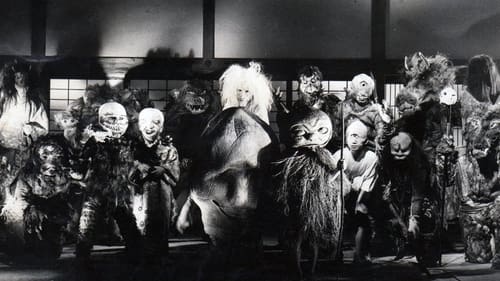
Village Headman
Un avaro mercader intenta desalojar un poblado a pesar de la pobreza de sus habitantes. Pronto se verá atacado por un extraño séquito de criaturas que lo harán conocer el horror absoluto. Obra de terror japonés que rescata lo más profundo de las tradiciones mitológicas del país oriental.
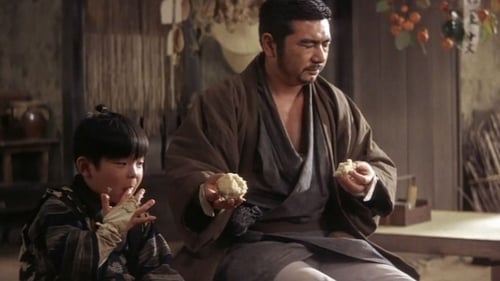
Decimoséptima de las veintiséis películas basadas en el personaje de Zatoichi interpretado por Shintarô Katsu. Zatoichi comparte habitación en una posada con una mujer moribunda junto a su joven hijo. Como última voluntad antes de morir, le pide a Zatoichi que lleve a su hijo junto a su padre, Shokichi, al cual no ve desde hace muchos años.

The first film in the 2 part series about Ryuzen, a renegade martial-arts priest who, in addition to breaking all the commandments against sex and gambling, opens his own gambling den in direct defiance of the local yakuza boss. Exciting action and a twisty plot this movie breaks new barriers in Japanese cinema. Katsu Shintaro is superb in one of his better non-Zato Ichi roles as he fights off the advances of a love-lorn woman and risks his life to defeat the powerful gambling boss who has a stranglehold on the town.
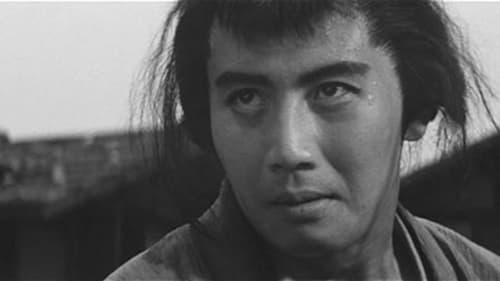
A naively honorable samurai (played by Raizo) comes to the bitter realization that his devotion to moral samurai principles makes him an oddity among his peers, and a very vulnerable oddity in consequence. He takes the blame for the misdeeds of others, with the understanding that he will be exiled for one year and restored to the clan's good graces after the political situation dies down. As betrayal begins to heap upon betrayal, he realizes he'll have to live out his life as a master-less ronin, if not hunted down and killed.
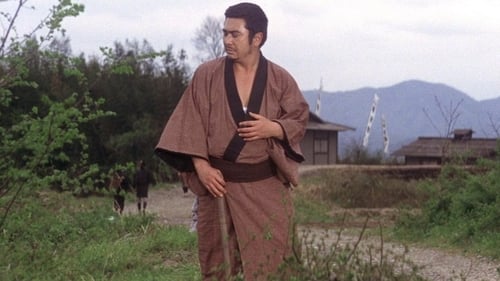
Kinbei
Zatoichi comes upon a dying man who asks him to give a bag of money to "Taichi". Zatoichi has no idea who this is but when he comes upon a small town harassed by gangsters, he finds that "Taichi" was the man's young son. Along his travels he also met a blind monk who makes Zatoichi question his murderous lifestyle. In trying to help the town, Zatoichi kills some gangsters and becomes a hero to the boy. He must make a choice of whether to use non-violence and set a good example, or violence and set the boy on the wrong path in life.

Tsuzaki Taichiemon
Hanpei es un joven samurái gentil que ama las flores. Un día, es testigo del rápido desenvainado de la espada de un anciano. Está tan impresionado que se convierte en alumno del anciano. Pronto, la habilidad con la espada de Hanpei llamó la atención de su señor. El señor le ordena asesinar a un hombre...
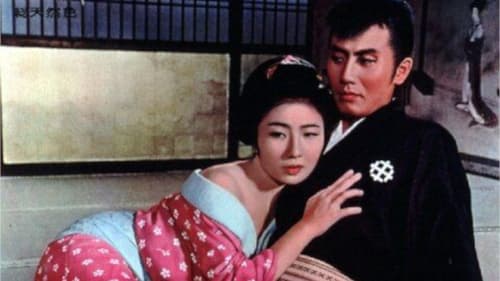
A fugitive christian "saint" (female, of course!) and a sadistic drug-addled princess both have their eye on Kyoshiro. The fact that a bunch of ruthless smugglers also want him dead is the least of his problems!

A wandering gambler strolls into a village searching for his father's killer, unaware that the village is run by criminals who sell the poorest peasants into slavery.

A decapitation at the hands of the shogun's monstrous misbegotten son kicks off the action and draws nomadic Nemuri Kyoshiro (Raizô Ichikawa) into more sword-fighting adventures when he's blamed for the beheading. Meanwhile, the head-chopper's mother is busy knocking off the shogun's lawful heirs to secure the shogunate for her son.

Wandering samurai Nemuri Kyoshiro (Raizô Ichikawa) finds a bulls-eye on his back after befriending the shogunate's tightfisted financial adviser, Asahina, who's earned the wrath of the shogun's self-indulgent daughter for cutting off her allowance. The enraged princess promptly hatches a scheme to have Asahina bumped off -- along with his protector, Kyoshiro. Shiho Fujimura also stars in this installment of the enormously popular film series.

советник
Yoso is truly a lost classic, set in the Nara Era (710-794), from Kinugasa Teinosuke the same writer/director who gave us the recognized classic Gate of Hell (Jigokumon, 1952) & the milestone silent surrealist masterpiece A Page of Madness (Kurutta Ippeji, 1926).
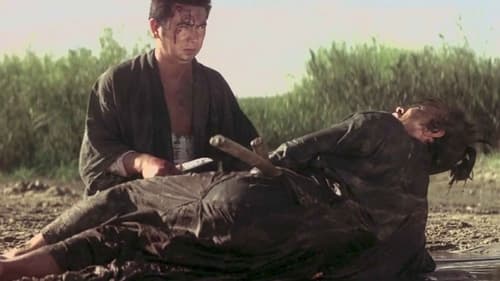
Cuarta de las veintiséis películas basadas en el personaje de Zatoichi, interpretado por Shintarô Katsu. En esta cuarta entrega, un clan yakuza pone precio a la cabeza de Zatoichi, por lo que muchos irán a por "el fugitivo" para ganarse una buena recompensa. Mientras tanto, Zatoichi se reencuentra con un viejo amor, Tane, pero esta ha rehecho su vida con otro hombre.
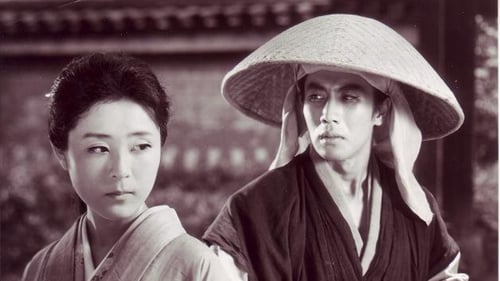
[Period covered: 1582-1594]. As the film opens, the warlod Nobunaga Oda rides to Iga Ayanokuni shrine. He is asked if he thinks he has destroyed all the ninja who opposed him and answers that he suspects that there may be more. A servant brings water and tests it first. The paige dies and we hear gunshots as two ninja flee the scene. His suspicions confirmed, Nobunaga oversees the execution of captured ninja and decides that, in the future, he needs a much crueler method of execution. The daimyo Hideyoshi comes to visit.

Nagasaki at the end of the Edo period had the taste of a criminal paradise, where, despite the exotic, dangerous work was always in demand. Here, three wandering samurai who earn their living by killing get to know each other. Soon they learn that government officials will be transporting a large cargo of gold and decide to steal it.
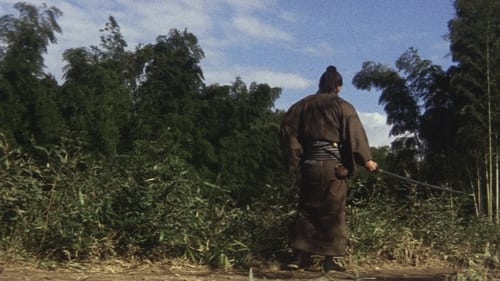
Tokuemon Kadoya
Un hombre honesto se une a los Shinsengumi por respeto a su líder y porque quiere vivir y morir como un samurai. Sin embargo, a medida que su participación en el grupo aumenta, la realidad y el idealismo entran en conflicto mortal.
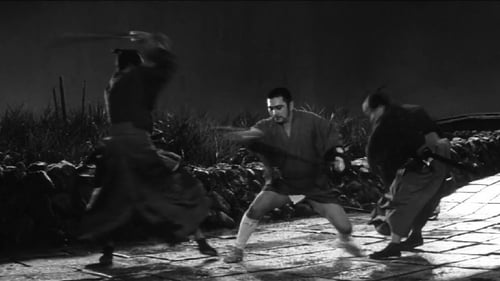
Segunda de las veintiséis películas basadas en el personaje de Zatoichi interpretado por Shintarô Katsu. En esta segunda entrega, Zatoichi se encuentra a un hombre, el cual carece de un brazo por culpa de un ataque de Zatoichi, celoso de él ante la posibilidad de perder a su amada...

The son of an executioner and the assassin he loved yet murdered learns of his origins, leaving his foster parents to avenge his mother's death.

Man in crowd 2
An Indian prince leaves his world of comfort and riches behind to wander and meditate for six years in search of spiritual enlightenment. Siddartha (Cojoin Hong) turns his back on the old religion when people are starving needlessly and holy rituals include human sacrifices. During his meditations, he is tempted by erotic dancing women, demons, and the evil machinations of his criminal cousin. Devastate to attain the spiritual perfection and become the Buddha. He travels to convert followers by his kindness and wisdom, gaining a multitude of believers when he stops an elephant from crushing a local priest. Buddha of course goes on to become one of the great religious leaders of the world.


Podríamos quejarnos de que Kenji Misumi repite desarrollo en la segunda y la tercera parte de “Satan´s Sword”. Sin embargo es una cuestión solo apreciable desde el punto de vista de aquel que lee la sinopsis. En lo que respecta a la película, cada una de ellas se ve respaldada por elementos secundarios que la diferencian completamente de las otras.
Precisamente es el hecho de repetición argumental centrada en la persecución de Hyoma buscando venganza, lo que hace que se debilite ese deseo. Él mismo comienza a tomárselo como una costumbre, llegando a olvidar incluso por qué lo hace. Su lucha interna solo se decidirá al llegar el final del film.
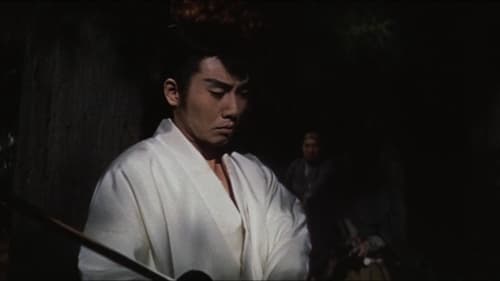
El asesino Tsuke Ryunosuke conoce a una mujer que se parece a su esposa asesinada Hama, y juntos tratar de evitar la venganza que buscan su hermano menor, Utsuki Hyoma de los Shinsengumi. Muchas figuras históricas se encuentran en esta película y supuestamente el carácter de Ryunosuke se basó en una persona de la vida real. Esta es la segunda de la trilogía.

This is the story of a blind masseur who tricks people, steals, and kills; he is the anti-Zatoichi

The exciting story of Jirocho and his yakuza gang that controlled the area of the Tokaido during the latter days of the samurai era. Awesome fighting from Katsu Shintaro as One-Eyed Ishimatsu highlights this great tale taken from Japanese history!
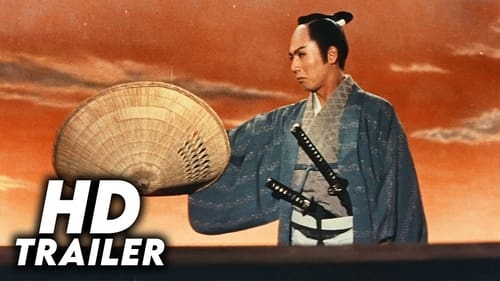
Two amiable samurai wind up on opposite sides of the vendetta between Lord Asano's retainers and the family of Lord Kira that led to the famous revenge of the 47 Ronin.

Saigû Honda
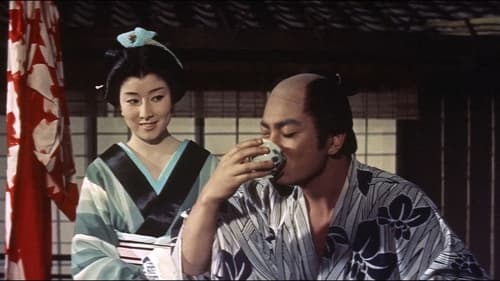
Legendary yakuza Shimizu Jirocho and his 28 henchmen travel the unruly path from a 'Fire Festival' in Akiba to a decisive battle by the Fujigawa.

Film directed by Kenji Misumi.

Last part of the Snake Woman trilogy.

Suzunosuke faces perhaps his wildest foes. This evil gang is lead by a one-eyed birdman and other demonic creatures.

One of Japanese folklore's most popular characters is brought to life on the silver screen in this terrific version of legendary Demon slaying Peach Boy.
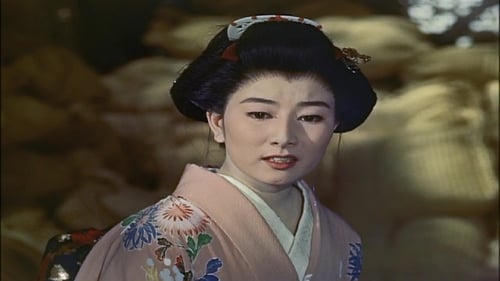
From the pen of Yoshikawa Eiji comes this exciting story. The Naruto Strait separates Tokushima from the islands of Awaji and Honshu. On Tokushima the mad lord dreams of conquest and forges a bloody revolt against the Tokugawa shogunate. A mysterious swordsman named Noriyuki Gennojo has crossed Naruto’s waters to uncover the Awa clan’s secrets. He puts his life on the line after finding a testament of Awa’s secrets, written in blood by a dying man. Joining Noriyuki are a female ninja who loves him, and the beautiful daughter of an enemy who’s sworn to kill him. Awa’s defenders willl stop at nothing to prevent the blood-soaked letter from reaching the shogun.
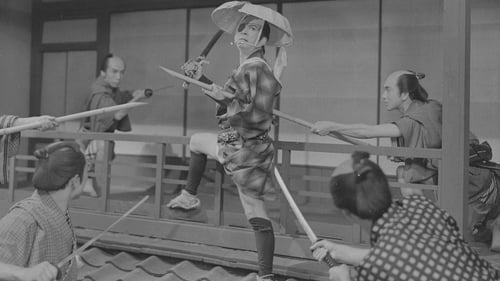
Big Masa
Ishimatsu of Mori, from his early days leading up to his joining with Shimizu Jirocho, Boss of the Tokaido where he made his mark in history through his tragic end this is the story of a beloved and loyal henchman.

A poor peasant, after years of scraping, becomes a rich and powerful Osaka merchant. Mizoguchi Kenji's final project; he died before completing it and directing duties turned over to Yoshimura Kozaburo.

Film adaption by Kenji Misumi
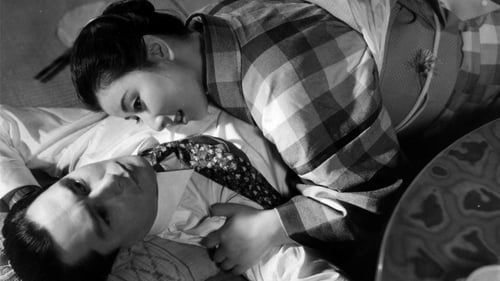
In Kyoto a young kimono maker with traditional ideas gets involved with a married professor.

Early film by Kenji Misumi.

It is brother against brother in this tale of love and betrayal within the famed Yagyu clan. In one of their earliest films together, superstars Ichikawa Raizo and Katsu Shintaro are magnificent as the two finest young swordsmen in the clan. As they vie for the hand of a beautiful woman their loyalty comes into question during an attack on their lord. When one of them masters the secret technique taught to him by Miyamoto Musashi, it leads to bloody violence that can tear the clan apart! Filled with superb swordplay this rare classic is not to be missed!
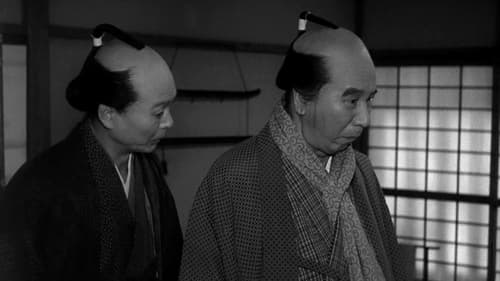
Jushiro Umegaki
Adaptación de una obra de teatro (kabuki) del siglo XVII de Chikamatsu Monzaemon. Osan vive en Kioto y está casada con Ishun, un rico y tacaño funcionario. Cuando Osan es acusada falsamente de tener una relación con Mohei, ambos huyen rápidamente de la ciudad. Ishun, por su parte, ordena a sus hombres que los encuentren y los separen para evitar el escándalo.


The Great White Tiger Platoon was part of the Aizu clan's last ditch efforts to stop the advance of Imperial troops after the fall of the Tokugawa Shogunate. Meant to be a reserve unit as it was made of the young, 16-17 year old sons of Aizu samurai. Their story is one of the great tragedies of the Boshin War (1868-1869) as they were called into action. Getting cut off from the main body of their platoon, a group of 20 from the 2nd squad retreated to Iimori Hill, where they looked down upon fires surrounding Aizu Castle and thinking that the castle has fallen and all is lost, they choose to die as samurai by committing seppuku. A superb rendition of this true story that shows the true honor of the samurai.
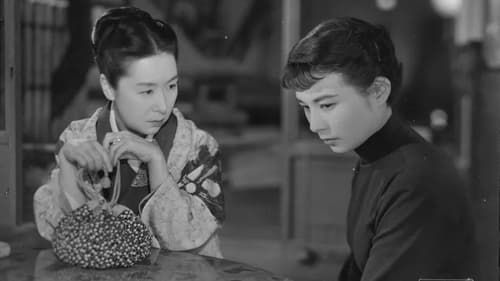
Kodama
Yukiko es una estudiante de música que, después de un intento de suicidio, vuelve con su madre, Hatsuko, una viuda que regenta una casa de geishas. El joven doctor Matoba, que mantiene un affaire con Hatsuko, se siente atraído por Yukiko. Ella, al principio, lo rechaza, pero sus sentimientos van cambiando y llega incluso a enfrentarse con su madre.
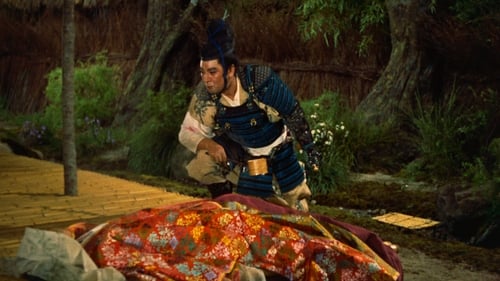
Nariie
Japón, 1159. Moritō, un valiente samurái, realiza un acto heroico rescatando a la encantadora Kesa durante un violento levantamiento. Moritō se enamora de ella, pero se angustia cuando se entera de que está casada.
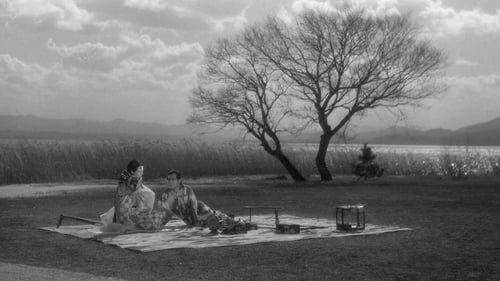
Villager
En el Japón del siglo XVI, los campesinos Genjuro y Tobei venden sus vasijas de barro a un grupo de soldados en un pueblo cercano, desafiando la advertencia de un sabio local contra la búsqueda de ganancias en la guerra. La búsqueda de riquezas de Genjuro y de la misteriosa Lady Wakasa, así como el deseo de Tobei de convertirse en samurái, corren el riesgo de destruirlos a ellos mismos y a sus esposas, Miyagi y Ohama.

A woman loses her son through an evil conspiracy and commits suicide. Shortly afterwards a ghost cat begins haunting the conspirators. This is Takako Irie's first bakeneko (ghost cat) movie; it started a Daiei cycle which was very popular at the time in Japan.

Tras el estallido de la Guerra del Pacífico, la industria del cine japonés sufre notables recortes. Numazaki, un guionista mediocre, está expuesto a un despido inminente. Su esposa Takako le anima a buscar trabajo en Kyoto. Pero Numazaki falla en su prueba de aptitud, en la que se le pedía escribir un guión para el famoso, pero exigente, director Sakaguchi (una referencia velada a Kenji Mizoguchi). Takako, durante un año, anima y apoya a su marido para que pueda perfeccionar sus capacidades a partir de ese fracaso...

Jewel thieves become interested in an invisibility formula invented by Professor Nakazato and want to use his invention to acquire a diamond necklace called the "Tears of Amour."

Jida-geki by Santaro Marune.

A Japanese film.











































